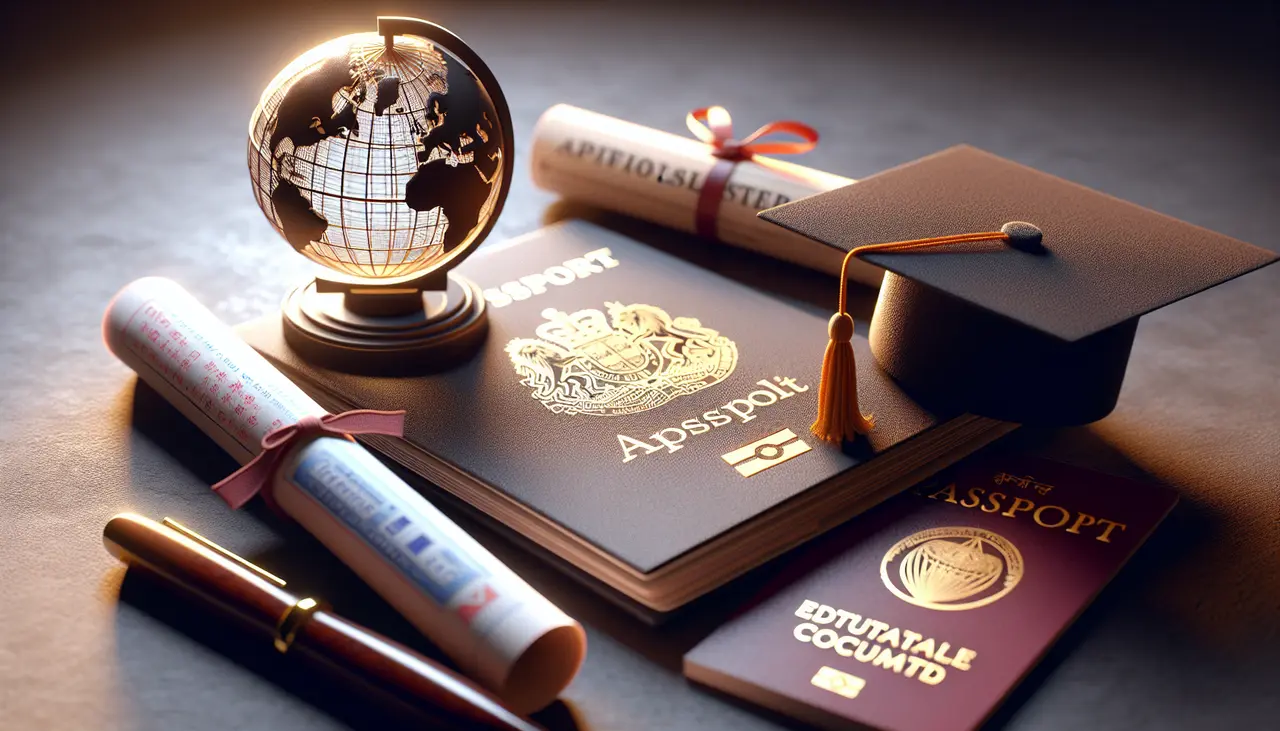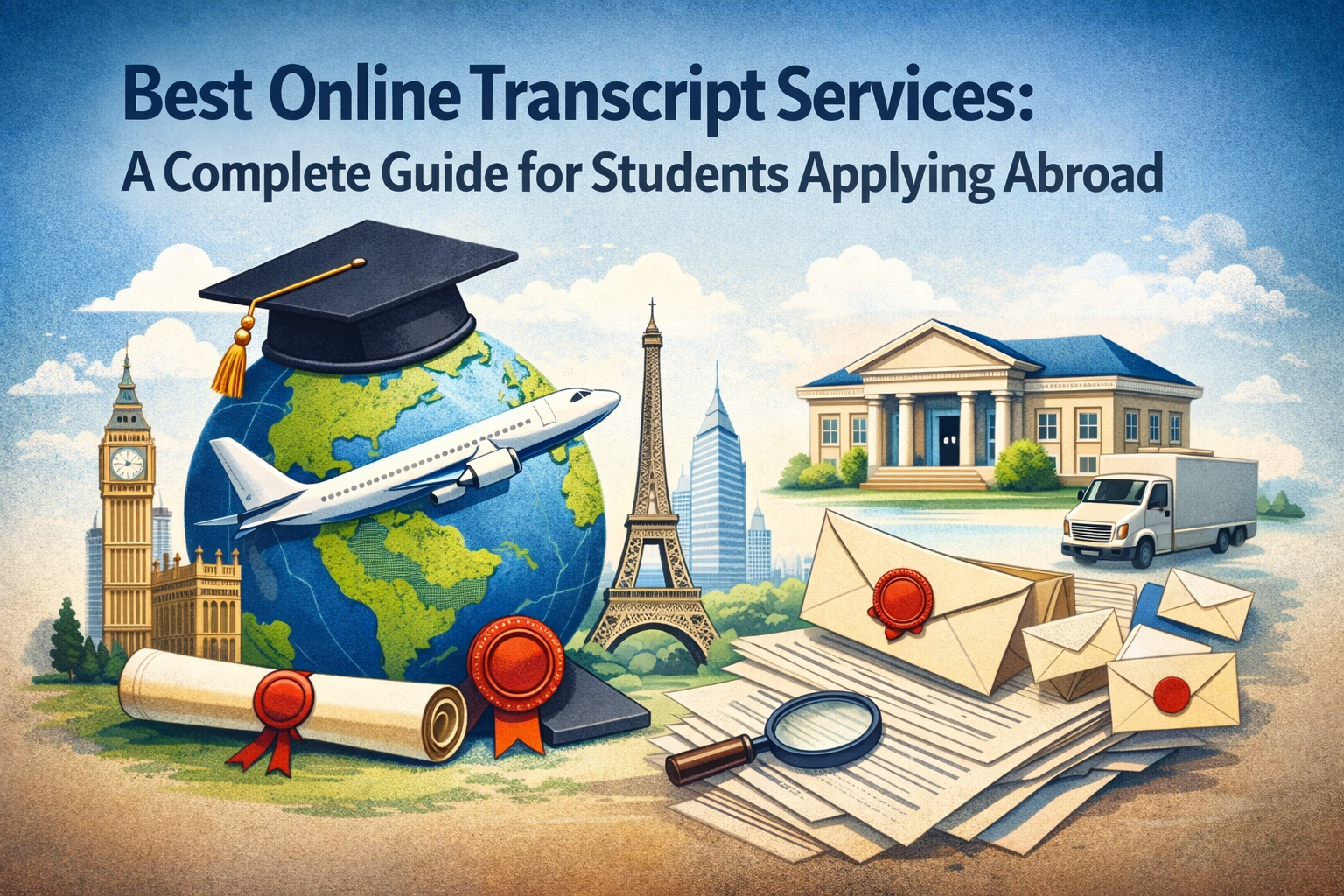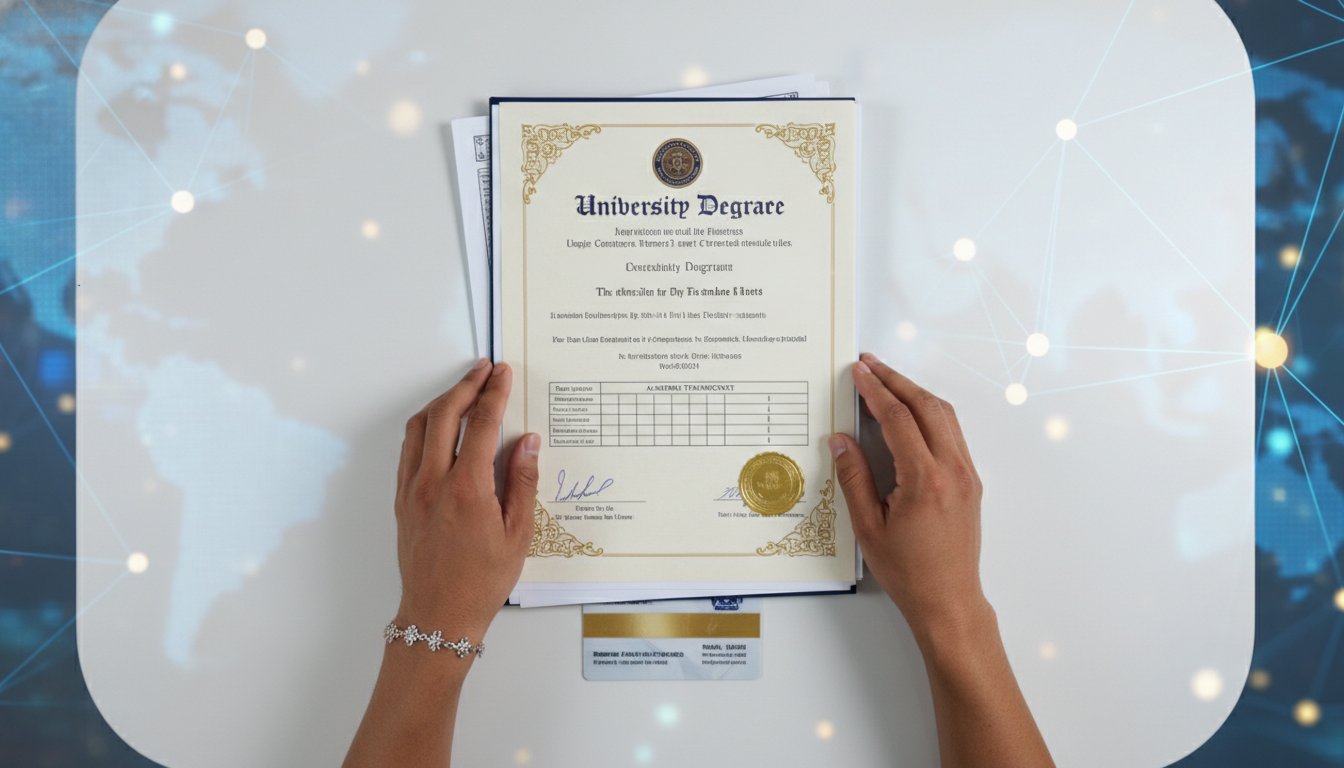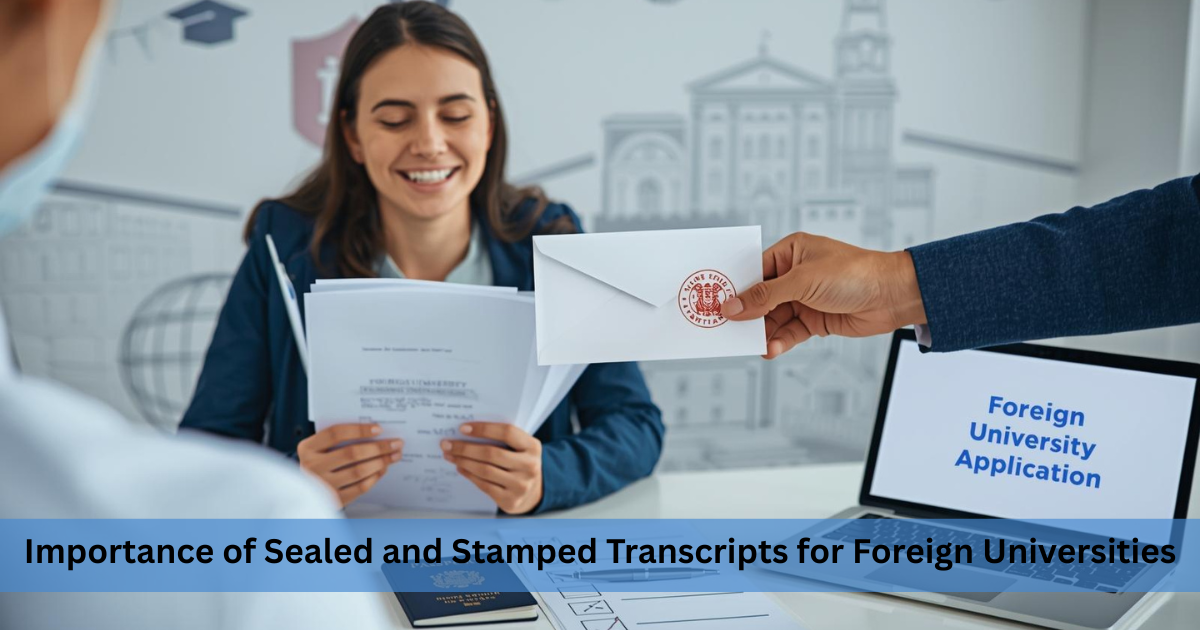Introduction to Document Apostille in India for Studying Abroad
When you’re planning to study abroad, getting your documents in order is critical, and one key step that often comes up is getting an apostille stamp. Now, what’s an apostille, you ask? It’s a kind of authentication issued to documents so they’re recognized internationally, under the Hague Apostille Convention. Imagine it as a global green light for your documents, telling other countries, “Yep, these are legit.”
Need help with the Apostille Services? Contact Us Now!
In India, the process might seem daunting at first, but it’s pretty straightforward once you get the hang of it. First things first, the apostille stamp is necessary for your educational documents like degrees and transcripts if you’re going to countries that are part of the Hague Convention. This includes places like the United States, Australia, Canada, and most European countries.
So, where do you get this stamp? The Ministry of External Affairs (MEA) in India is your go-to. They’re the ones who give your documents the final nod with an apostille stamp. But before it reaches the MEA, your document needs to be authenticated by the relevant state authorities where the document was issued. Think of it as a double-check, first by the state and then by the central government, to ensure everything is up to snuff.
Remember, each document might have a different path based on its type. Educational documents, for instance, usually need verification from the state education department first. The good news? Once your document is apostilled, you’re all set. No need for further legalization by the embassy of the country where you’re heading.
Keep in mind, the apostille process can take some time, so it’s wise to start early. Rushing at the last minute is a recipe for headaches. And while it might sound like a bunch of bureaucratic hoops to jump through, getting that apostille stamp is a crucial step in making your study abroad dreams a reality.
Understanding the Apostille Stamp: What It Is and Why It Matters
When you’re packing your bags and dreaming about your study abroad adventure, there’s one small but crucial detail you can’t overlook: getting an Apostille stamp on your educational documents. So, what’s this stamp all about, and why should you care? Well, it’s pretty simple but super important. An Apostille stamp makes your documents legally valid overseas. Think of it as a global green light for your paperwork.
Countries part of the Hague Convention agreed to recognize public documents with an Apostille stamp. This means if you’re heading to one of these countries, you need this stamp to ensure your degrees, transcripts, and other documents are valid. Without it, your receiving institution might say, “Nice try, but no thanks,” to your paperwork.
It’s all about making international document verification smoother. This stamp tells foreign officials and schools, “Yep, these papers are legit” without them having to dig into the legality themselves. Saves time, prevents headaches.
Remember, the Apostille doesn’t check the quality of what’s on your documents, just confirms they’re genuine. So, before you get lost in the excitement of new cuisines and cultures, make sure to tick the Apostille stamp off your to-do list. A bit of paperwork now means no nasty surprises later.
Read more: Navigating the Process of Document Apostille in India for Higher Education Abroad
The Hague Convention and Its Role in Document Apostille
The Hague Convention, a big deal struck in 1961, changed the game for documents used abroad. It made proving your documents are legit easier, skipping the long checks usually needed when you move to a new country for studies. Here’s the deal: if the country you’re planning to study in and your home country both signed this agreement, you need an apostille stamp on your educational documents. This stamp is like a golden ticket, saying your papers are real and can be trusted without more verification. Without this stamp, your documents could be questioned, slowing down your study abroad plans. Remember, not all countries are in on this, so check if yours and your destination country play by the Hague Convention rules.
The List of Educational Documents That Require an Apostille Stamp
When you’re planning on studying abroad, there’s a bunch of paperwork that needs to get sorted. One key step is getting an Apostille stamp on your educational documents. This stamp makes your documents legit in countries that are part of the Hague Convention. Here’s a rundown of the documents you usually need to get stamped:
- Diplomas – Stuff like your high school or university diploma definitely needs this stamp.
- Transcripts – These detailed records show all your grades and are super important for schools abroad.
- Birth Certificates – Seems odd, but some places want this to verify your identity.
- Letters of Recommendation – If you’re bringing letters from teachers or professors, these might also need a stamp.
- Academic Records – Any other official papers that show your academic journey may require apostille too.
Remember, getting this stamp is like getting a seal of approval that says your documents are genuine. So, make sure to check off these from your to-do list before you pack your bags.
The Apostille Process in India: A Step-by-Step Guide
Getting your educational documents apostille in India is a must if you’re planning on studying abroad. An apostille stamp validates your documents for use in countries part of the Hague Convention, proving they’re legit. Here’s how you do it, step by step. First up, get your educational documents ready. Everything from your diploma to transcripts needs to be in order. Next, these documents have to be verified by the designated authority in your state. It could be the HRD (Human Resource Development) Department or the Education Department. Now, once your documents are state-authenticated, take them to the Ministry of External Affairs (MEA) for final validation. The MEA is your final stop; they’ll give your documents that all-important apostille stamp. Remember, each step costs you time and a bit of money, so plan accordingly. Start this process well before your study abroad program begins to avoid any stressful last-minute rushes.
Common Misconceptions About Document Apostille and the Truth
Many think getting an apostille stamp is a complex, time-consuming process, but it’s quite straightforward. Another misconception is that all your documents need the apostille. In reality, only specific ones like diplomas or birth certificates require it, depending on the country you’re going to. Some believe apostille services are expensive. While costs vary, it’s generally affordable, and considering it’s a one-time process for each document, the price isn’t as steep as you might think. Finally, there’s a myth that you can get the apostille in any country. The truth is, the apostille must be issued in the country where the document originated. Knowing these facts can save you a lot of time and unnecessary worry.
How Long Does It Take to Get a Document Apostilled in India?
Getting a document apostilled in India usually takes about 5 to 7 working days. However, this can vary depending on several factors like the type of document, the state from which you’re obtaining the apostille, and the overall workload of the Ministry of External Affairs (MEA). Keep in mind, during peak periods, say when lots of students are preparing to study abroad, the process might take a bit longer. To speed things up, ensure your documents are all in order before submitting them and consider using the services of a professional apostille service provider. They know their way around the system and can often help you get your documents apostilled quicker. Remember, plan ahead to avoid any last-minute rushes that could delay your study abroad plans.
Preparing Your Documents for Apostille: Tips and Best Practices
When you’re getting ready to study abroad, making sure your educational documents have an Apostille stamp is crucial. This might sound complex, but let’s break it down into simpler steps. Start by gathering all the documents you need, like your diploma, transcripts, and any other proof of academic achievement. Once you have everything, check the specific requirements of the country where you’ll be studying because the needed documents can vary.
Next up, confirm which of your documents require an Apostille stamp. Not all paperwork might need it, so this step can save you time and hassle. After figuring out what needs stamping, you’ll have to get these documents officially notarized. Find a reputable notary who knows the drill with educational documents to make this process smoother.
Now, for the Apostille itself, contact your state’s Secretary of State office or the equivalent authority. They handle the Apostille process, but remember, each state might do things a bit differently. Don’t hesitate to reach out to them for guidance; that’s what they’re there for!
Lastly, give yourself plenty of time. This isn’t something you want to do at the last minute. It can take a few weeks, or longer in some cases, to get everything stamped and ready. Rushing can lead to mistakes or oversights, and you definitely don’t want that.
So, in short, check what documents need an Apostille, get them notarized, contact the state authority for issuing the Apostille, and start early. Following these steps will make sure your educational credentials are fully recognized in your new country of study. It’s all about preparing the right way to kick off your international education journey on the right foot.
Read more: The Impact of Indian Document Attestation on Your Study Abroad Applications
Apostille Services in India: How to Choose the Right Provider
Choosing the right apostille service in India is crucial for making your study abroad journey smooth. An apostille stamp authenticates your educational documents, proving they’re legit. This process can seem daunting, but here’s how to pick the right provider. First, check if the service is recognized by the Ministry of External Affairs (MEA) – that’s a must. Experience matters; go for a provider with a good track record. They’ll know exactly what to do, minimizing mistakes. Transparency in fees is important. No one likes hidden costs, so ensure they lay it all out upfront. Read reviews. What others say can give you insights into their reliability and service quality. Lastly, customer service is key. You want someone responsive, especially when you’re dealing with something as critical as your educational future. Keep it simple, follow these steps, and you’ll find a provider that gets the job done right.
Final Thoughts: Streamlining Your Study Abroad Preparation with Document Apostille
When it’s time to pack your bags and fly off for your studies, the last thing you want slowing you down is paperwork mishaps. That’s where getting an apostille for your educational documents comes in clutch. Think of an apostille stamp as a global thumbs-up for your papers. This stamp makes your documents trustworthy in nations that are part of the Hague Apostille Convention. It’s a simplified form of document verification that crosses international borders. Without it, countries might not recognize your academic credentials, which can throw a wrench into your study plans.
So, before you get too caught up in the excitement of selecting courses or dreaming about new adventures, prioritize the apostille process. It’s straightforward but essential. Find a reputable service or check with your government’s apostille authority to get started. Remember, timings can vary, and last-minute rushes are a headache you don’t need.
Getting this stamp might seem like just another task on your long to-do list, but it’s a step that paves the way for a smooth academic journey abroad. It’s about making sure that when you land, you’re ready to hit the ground running, not stuck in a loop of administrative red tape. So, embrace this crucial step. It’s not just about verification; it’s about setting the stage for your international academic adventure.
Reach out to us or fill the enquiry form to connect with the expert team of World Document Services.
















 Call Us
Call Us Mail Us
Mail Us WhatsApp
WhatsApp
